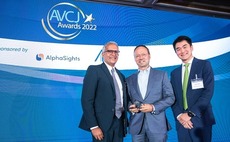
3Q analysis: Digital dreamers

Early- and growth-stage technology deals dominate the China investment charts; middle market fundraising enjoys a rebound; private equity investors turn to trade sales as the public markets flounder
1) Investment: Tech, tech, and more tech
The $3 billion funding round for China-based ride-hailing service Didi Kuaidi - one third of which was announced in the second quarter of 2015, and the rest in the third quarter - is significant for a number of reasons, aside from the eye watering valuation of around $16 billion.
First, it is said to be the largest-ever fundraise globally by a private internet start-up. Second, it was followed by announcements that Didi Kuaidi had invested in US-based Lyft and India's Ola, suggesting that Uber's rivals are lining up against it. (News of a commitment to Southeast Asia's GrabTaxi emerged a couple of weeks before the record-breaking round closed in early September.) And third, it capped a three-month period in which early and growth-stage China tech deals dominated the PE landscape.
The phenomenon of ever larger rounds for companies operating at the nexus of consumer and technology has gathered pace over the last two years. The vast majority of these deals are classified by AVCJ Research as computer-related, information technology or electronics, plus a little financial services. In the first quarter of 2014, early-stage investments across these categories amounted to $151.3 million, with $822.5 million growth-stage transactions - or a combined 16.4% of total private equity deal flow.
Over the next four quarters, the amount of capital committed to these transactions steadily grew, as did the share of overall activity. Then in the first three months of 2015 - a generally slow period for China private equity - it jumped to 61.3% before falling back to 25.7% the following quarter. Still, aggregate deal value was $4.97 billion, a six-fold increase on the total for the first quarter of 2014.
During the three months ended September, early- and growth-stage tech deals accounted for three in every four dollars that went into a China private equity investment, a stunning statistic - although it is worth nothing that the data are preliminary and an as-yet-undisclosed buyout could redress the balance somewhat.
As it stands, the third quarter of 2015 was relatively quiet for non-China deals, with just $2.93 billion transacted. Struggling public markets were certainly a factor, with PIPE deals, for example, dropping to $614.5 million, the lowest quarterly total since the first three months of 2011. Anecdotal evidence suggests that global firms in particular are finding it hard to get China deals past investment committees wary of the country's slowing economy as well as unpredictability for listed equities.
Indeed, the impact of China's sell-off on markets across the region resulted in PIPE deals coming in at a multi-year low. Overall investment activity for the quarter reached $29.1 billion, down on the previous three months but still higher than any other quarter since before the global financial crisis. At $13.5 billion, the buyout total alone is the largest eight years - perhaps unsurprising given the quarter saw Asia's largest-ever buyout as MBK Partners led a consortium in the $6.4 billion acquisition of Home Plus, Tesco's South Korean retail unit.
Nevertheless, aggregate China early- and growth-stage tech investments surpassed even this deal in size. More than $8.8 billion was committed, and while the number of transactions was unusually large, capital is concentrated in a relatively small number of start-ups. AVCJ Research has records of about 240 China deals, including 39 of $50 million or more. Of these, 26 fall into the early- and growth-stage tech category and they are worth $6.9 billion between them.
Didi Kuadi is by some distance the biggest deal, but it is one of 14 worth $100 million or above. Online travel business Tongcheng Network Technology received a $967 million Series D round from CITIC Capital, Wanda Group and Tencent Holdings; Warburg Pincus and Legend Capital re-upped as chauffeured car service provider Ucar raised $800 million; and online food-ordering platform Ele.me got $630 million from a combination of new and existing investors.
It remains to be seen if this bullish investor sentiment on established players in China's technology sector can withstand further macroeconomic weakness or public markets chaos.
2) Fundraising: Seeds of hope beyond China
Asian private equity fundraising endured its weakest quarter in nearly two years, with $13. 5 billion committed to 55 funds, including full and partial closes. This compares to $15.3 billion for the previous three months.
China saw the sharpest downturn in activity as fundraising reached $3.8 billion, the lowest quarterly total since 2009. Renminbi-denominated vehicles have in recent times accounted for the bulk of capital raised and this was the case again, but only marginally. LPs committed $1.9 billion to these funds, well short of the average of $6 billion for the previous six quarters.
Given these numbers are preliminary and the renminbi space can be opaque, the situation might not be as bad as it presently appears. However, if investors are looking for evidence of deteriorating sentiment in the face of slowing economic growth and volatility in the public markets, this could be it.
Elsewhere, five markets actually posted a quarter-on-quarter increase in private equity fundraising: Australia, Hong Kong, India, Japan and South Korea. The first two owe their performance to final closes for two sizeable buyout funds - Pacific Equity Partners completed the last tranche of fundraising for its A$2.1 billion ($1.8 billion) fifth fund, which focuses on Australia and New Zealand, while Hong Kong-headquartered RRJ Capital closed its third vehicle at $4.5 billion.
In each of the other jurisdictions, there was encouragement for the middle market. IMM Private Equity and Anchor Equity Partners rounded off their latest South Korean funds at $1.1 billion and $850 million, respectively. In Japan, Unison Capital raised $637 million for its fourth vehicle and The Carlyle Group got approximately $1 billion for its third country-focused fund.
Finally in India, a market towards which there was some skepticism in the LP community as recently as two years ago, Everstone Capital closed its third fund - which also has an allocation for India-related investments in Southeast Asia - at $730 million, while India Value Fund Advisors hit its $700 million target for Fund V.
Moving further down the list of fundraises, it should be noted that both Ascendent Capital Partners ($600 million) and CDIB Capital ($405 million) managed to raise capital for China, the former taking a merchant banking-style capital-plus-strategic counsel approach and the latter targeting overseas businesses that serve as proxies for Chinese growth.
This could be seen to underline the marketability of a differentiated China strategy, even in a challenging fundraising environment.
3) Exits: A public markets downturn
Until mid-way through June, public markets were riding high and private equity firms took advantage, completing a string of exits. This was the context as, between April and June, public market sales surpassed 50% of total exit activity for the first time in nearly four years.
How times have changed. The Shanghai Composite Index closed at 5,166 points on June 12. It ended September at 3,052 points, down 41%. The Shenzhen Component Index had fallen 45%, while the SME Board and Chinext were down 43% and 46%, respectively.
Other markets in the region were teetering as summer drew to a close and China's "Black Monday" in late August - the market saw its worst single-day loss since 2007 - was enough to push them over the brink. The Hang Seng Index ended the quarter down 21%, the BSE Sensex Index fell 5.9%, the Nikkei 225 Index fell 15%, and the ASX 220 Index lost 8%.
Public market exits, which reached $6.6 billion in the second quarter of 2015, came to just $1.4 billion in the third quarter, the lowest total since the same three months of 2013. The IPO market was disappointing for much the same reasons: 34 private equity-backed companies generated collective proceeds of $4.1 billion, compared to $19 billion from 89 offerings in the previous three-month period.
India was a rare bright spot, with four portfolio companies going public and raising $299 million, the highest quarterly total in three years. Norwest Venture Partners, Xander Advisors, Aditya Birla Private Equity, SAIF Partners, Proparco, Rabo Equity and Motilal Oswal Private Equity all secured liquidity events.
In all, there were just over 90 private equity exits during the third quarter and the aggregate proceeds of $12.2 billion represent only a slight decrease on the previous three months. This was because the drop off in public market activity was counterbalanced by a jump in trade sales. There were 55 in total and overall deal value came to $6.5 billion, more than twice the figure for the previous quarter.
MBK Partners had a hand in each of the two largest exits: Alongside Goldman Sachs, Owl Creek Asset Management and PAG, it offloaded a majority stake in Universal Studios Japan to Comcast Corporation for $1.5 billion; and Taiwan cable TV provider China Network Systems was sold to Morgan Stanley Private Equity Asia and Far EasTone Telecommunications $2.3 billion.
It should be stressed that the latter transaction has not yet closed and two previous attempts to sell the business in the past five years have come to nothing. However, as a large-scale exit and a buyout by another private equity firm - albeit one working in tandem with a local strategic investor - it is one deal that most of the industry would like to see completed. Approvals for control investments involving PE investors have proved notoriously troublesome in Taiwan.
Another interesting theme is exits to domestically-listed Chinese companies. With Jin Jiang International agreeing to buy 7 Days Inn for RMB8.3 billion ($1.3 billion) - paving an exit for several PE investors - and NewQuest Capital Partners and Tsing Capital securing a $524.6 million exit of China Hydroelectric to Shenzhen Energy, the total value of China trade sales in 2015 nearly doubled.
Of the 40 or so transactions, half involved mainland-listed buyers. Last year, this share was 59%, with a scattering of Hong Kong and US-listed Chinese companies making up the numbers. It represents a marked turnaround from just two years ago, when mainland buyers accounted for fewer than one in five exits.
Latest News
Asian GPs slow implementation of ESG policies - survey
Asia-based private equity firms are assigning more dedicated resources to environment, social, and governance (ESG) programmes, but policy changes have slowed in the past 12 months, in part due to concerns raised internally and by LPs, according to a...
Singapore fintech start-up LXA gets $10m seed round
New Enterprise Associates (NEA) has led a USD 10m seed round for Singapore’s LXA, a financial technology start-up launched by a former Asia senior executive at The Blackstone Group.
India's InCred announces $60m round, claims unicorn status
Indian non-bank lender InCred Financial Services said it has received INR 5bn (USD 60m) at a valuation of at least USD 1bn from unnamed investors including “a global private equity fund.”
Insight leads $50m round for Australia's Roller
Insight Partners has led a USD 50m round for Australia’s Roller, a venue management software provider specializing in family fun parks.








